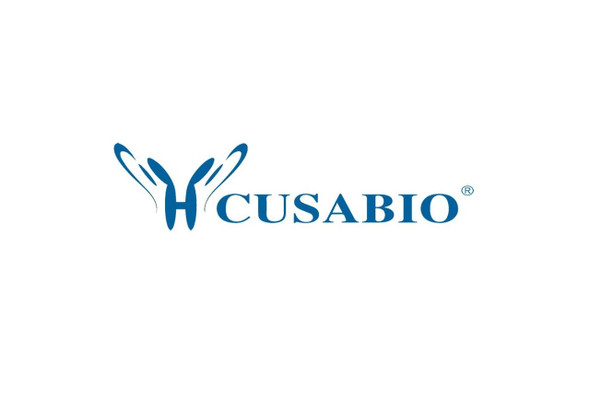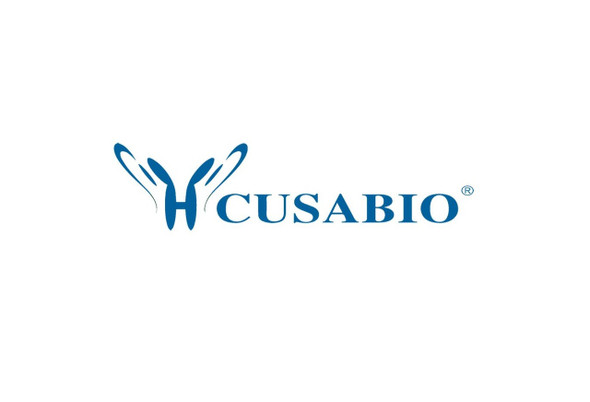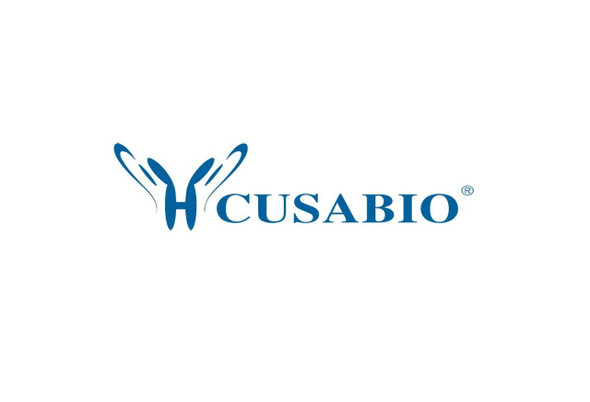Cusabio Active Proteins
Recombinant Mouse Glypican-1 (Gpc1) (Active) | CSB-AP005761MO
- SKU:
- CSB-AP005761MO
- Availability:
- 5 to 10 Working Days
Description
Recombinant Mouse Glypican-1 (Gpc1) (Active) | CSB-AP005761MO | Cusabio
Protein Description: Full Length of Mature Protein
Alternative Name (s) : Glypican-1;Gpc1
Gene Names: Gpc1
Research Areas: Signal Transduction
Species: Mus musculus (Mouse)
Source: Mammalian cell
Tag Info: C-terminal 6xHis-tagged
Expression Region: 24-529aa
Sequence Info: DPASKSRSCSEVRQIYGAKGFSLSDVPQAEISGEHLRICPQGYTCCTSEMEENLANHSRMELESALHDSSRALQATLATQLHGIDDHFQRLLNDSERTLQEAFPGAFGDLYTQNTRAFRDLYAELRLYYRGANLHLEETLAEFWARLLERLFKQLHPQLLPDDYLDCLGKQAEALRPFGDAPRELRLRATRAFVAARSFVQGLGVASDVVRKVAQVPLAPECSRAIMKLVYCAHCRGVPGARPCPDYCRNVLKGCLANQADLDAEWRNLLDSMVLITDKFWGPSGAESVIGGVHVWLAEAINALQDNKDTLTAKVIQACGNPKVNPHGSGPEEKRRRGKLALQEKPSTGTLEKLVSEAKAQLRDIQDFWISLPGTLCSEKMAMSPASDDRCWNGISKGRYLPEVMGDGLANQINNPEVEVDITKPDMTIRQQIMQLKIMTNRLRGAYGGNDVDFQDASDDGSGSGSGGGCPDDTCGRRVSKKSSSSRTPLTHALPGLSEQEGQKTS
Biological Activity: The ED50 as determined by its ability to bind Human FGFb in functional ELISA is less than 10 ug/ml.
MW: 56.7 kDa
Purity: Greater than 90% as determined by SDS-PAGE.
Endotoxin: Less than 1.0 EU/µg as determined by LAL method.
Relevance: Glypican-1 is a cell membrane protein and belongs to the glypican family. The protein may act as a catalyst in increasing the rate of conversion of prion protein PRPN (C) to PRNP (Sc) via associating (via the heparan sulfate side chains) with both forms of PRPN, targeting them to lipid rafts and facilitating their interaction. It is required for proper skeletal muscle differentiation by sequestering FGF2 in lipid rafts preventing its binding to receptors (FGFRs) and inhibiting the FGF-mediated signaling.
PubMed ID:
Notes: Repeated freezing and thawing is not recommended. Store working aliquots at 4℃ for up to one week.
Function: Cell surface proteoglycan that bears heparan sulfate. Binds, via the heparan sulfate side chains, alpha-4 (V) collagen and participates in Schwann cell myelination (By similarity) . May act as a catalyst in increasing the rate of conversion of prion protein PRPN (C) to PRNP (Sc) via associating (via the heparan sulfate side chains) with both forms of PRPN, targeting them to lipid rafts and facilitating their interaction. Required for proper skeletal muscle differentiation by sequestering FGF2 in lipid rafts preventing its binding to receptors (FGFRs) and inhibiting the FGF-mediated signaling. Binds Cu (2+) or Zn (2+) ions.
Involvement in disease:
Subcellular Location: Cell membrane, Lipid-anchor, GPI-anchor, Extracellular side, Endosome
Protein Families: Glypican family
Tissue Specificity:
Paythway:
Form: Lyophilized powder
Buffer: Lyophilized from a 0.2 μm filtered 1xPBS, pH 7.4
Reconstitution: We recommend that this vial be briefly centrifuged prior to opening to bring the contents to the bottom. Please reconstitute protein in deionized sterile water to a concentration of 0.1-1.0 mg/mL.We recommend to add 5-50% of glycerol (final concentration) and aliquot for long-term storage at -20℃/-80℃. Our default final concentration of glycerol is 50%. Customers could use it as reference.
Uniprot ID: Q9QZF2
Uniprot Entry Name:
HGNC Database Link: N/A
UniGene Database Link: UniGene
KEGG Database Link: KEGG
STRING Database Link: STRING
OMIM Database Link: N/A









